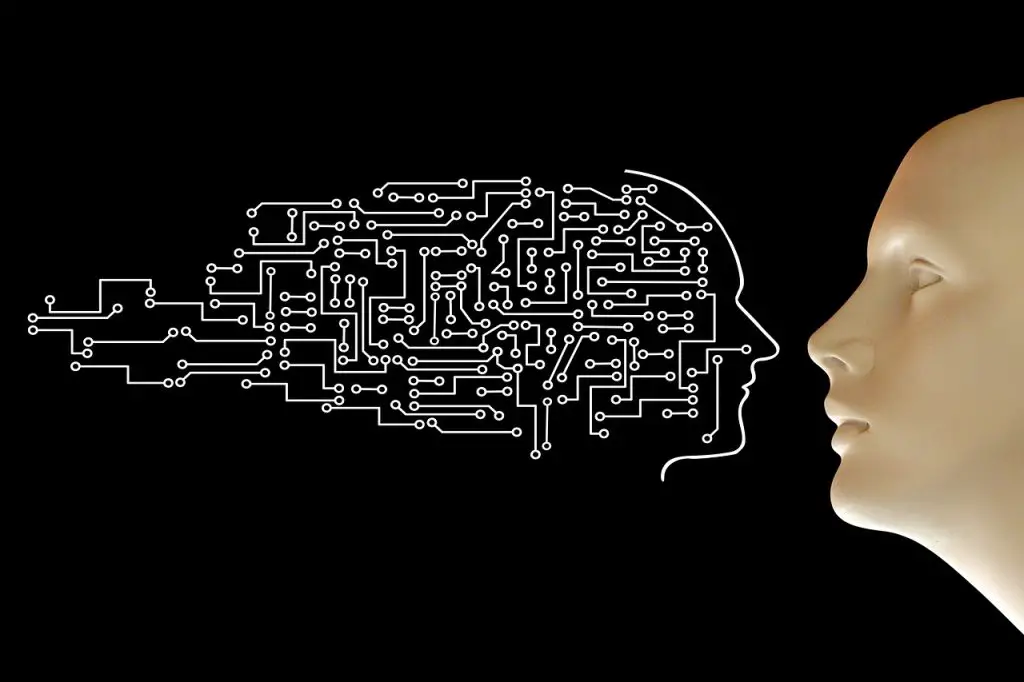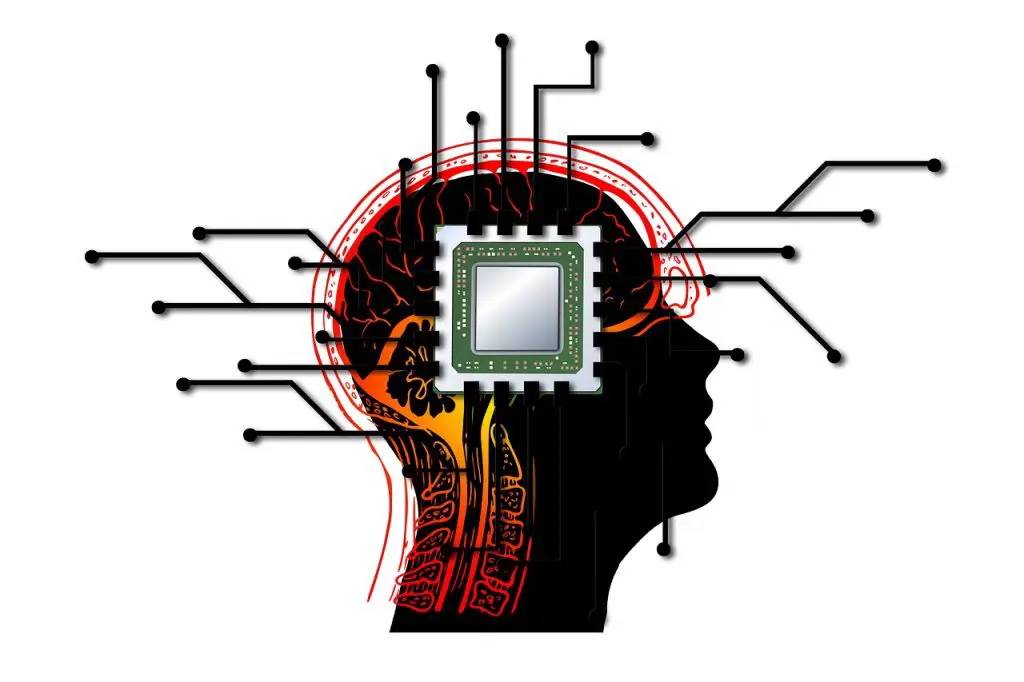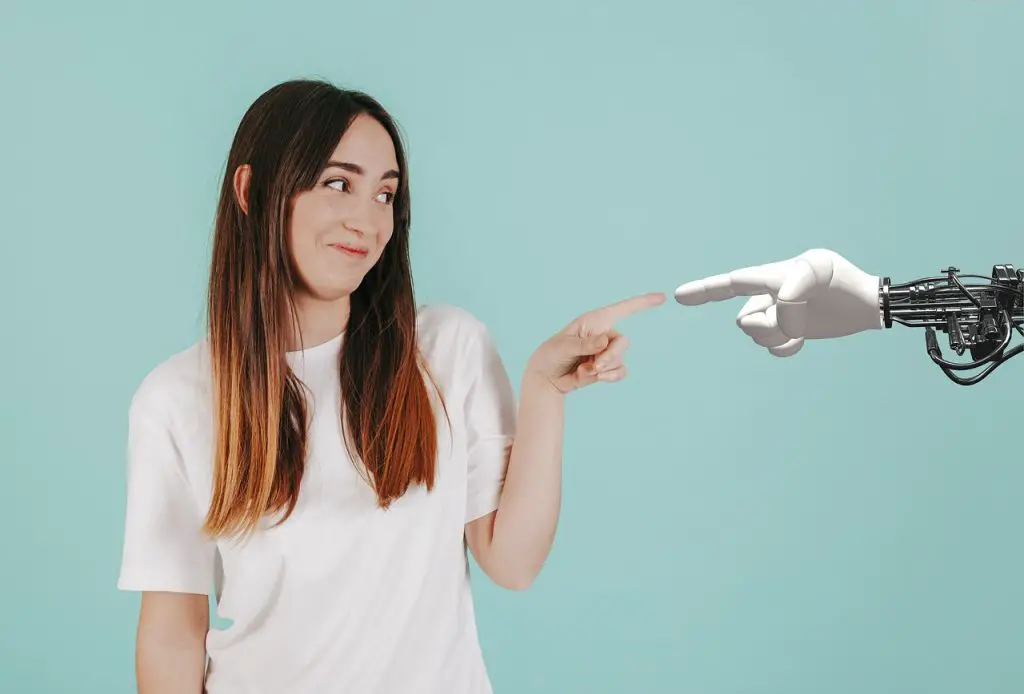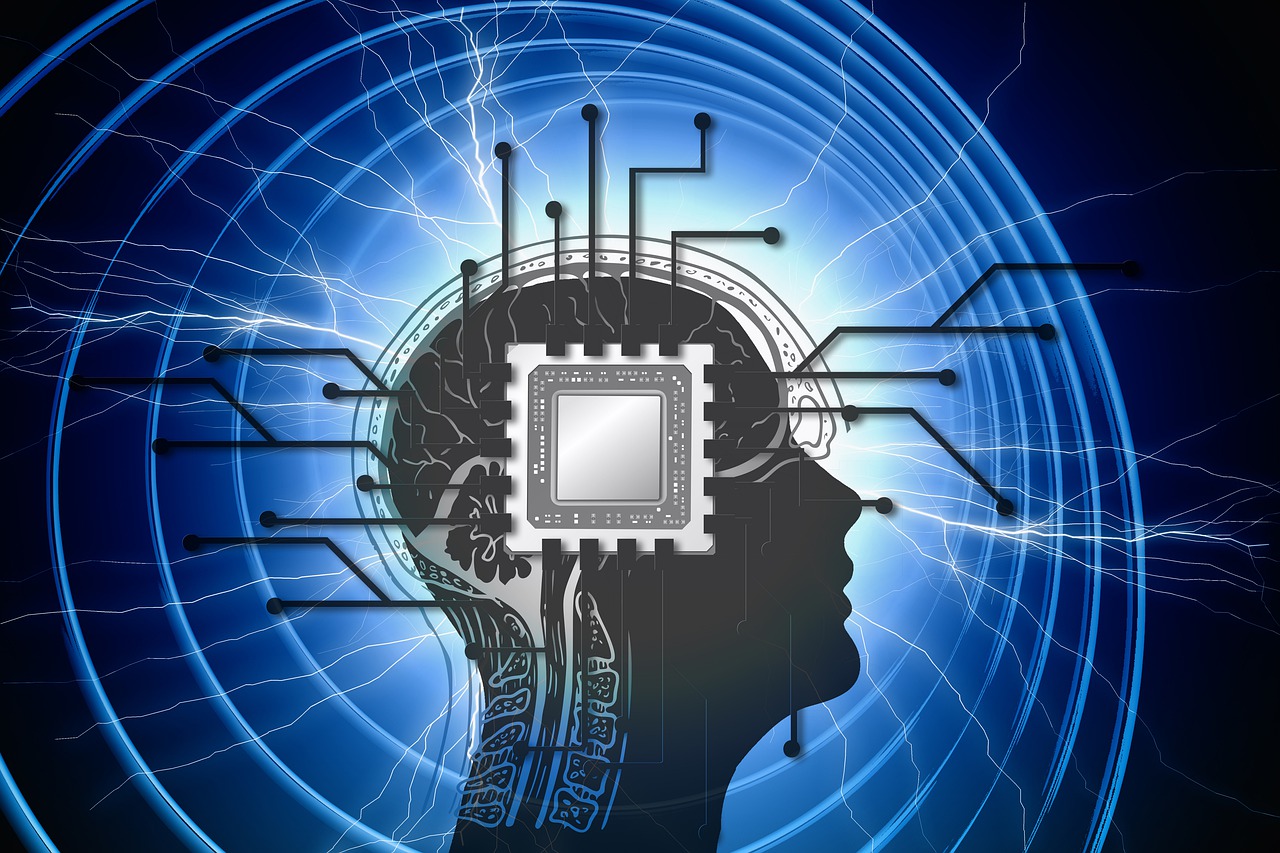Artificial intelligence (AI) and human intelligence (HI) are often confused. This is understandable since they both involve the use of the mind to solve problems. However, there are important differences between the two that should be understood.
First, AI is based on machines while HI is based on humans. Second, AI can be programmed to perform specific tasks while HI involves general problem-solving abilities. Third, AI usually relies on pre-determined rules while HI often uses intuition and creativity. Finally, AI operates at a much faster speed than HI and can process large amounts of data more efficiently.
Artificial intelligence (AI) is often compared to human intelligence (HI), but there are important ways in which they differ. For one thing, HI is based on years of evolutionary trial and error, while AI is based on the logical principles of mathematics and computer science. As a result, AI can be said to be more “rational” than HI.
Another important difference is that HI is context-dependent, while AI is not. That is, HI cannot be separated from the body and brain that it evolved in, whereas AI can be implemented in any suitable medium (e.g., software). This means that AI can potentially outperform HI in tasks that require memory or processing power but may lack some of the flexibility and creativity of HI.
Finally, it should be noted that AI is still in its infancy, while HI has been around for hundreds of thousands of years. As such, it is likely that the two will continue to diverge as AI technology improves.
Artificial intelligence vs Human Intelligence
Which is Better Human Intelligence Or Artificial Intelligence?
There is no clear answer as to whether human intelligence or artificial intelligence is better. It depends on how you define “better.” If you measure intelligence by things like problem-solving ability, memory, and processing speed, then machines clearly have the upper hand.
However, if you consider factors like creativity, emotional intelligence, and social skills, humans are still superior. In general, AI excels at narrow tasks that require a lot of data but struggle with more open-ended tasks that require common sense or intuition.
Artificial intelligence has been gaining a lot of traction in recent years with major tech companies like Google, Facebook, and Amazon investing heavily in AI research and development. But is artificial intelligence really better than human intelligence?
Let’s take a look at some of the key differences between AI and human intelligence to see if one is truly better than the other.
One of the main advantages of artificial intelligence over human intelligence is that AI can process large amounts of data much faster than humans can. This ability to quickly analyze data is what allows AI-powered machines to beat humans in chess and Go, for example. Additionally, AI systems never get tired and can work for long hours without breaks.
Another advantage of AI is that it can be programmed to have specific goals or objectives and then pursue those goals relentlessly until they are achieved. This single-mindedness is something that humans often lack when trying to achieve complex goals. Additionally, because AI systems are not biased by emotions or personal preferences, they can sometimes make more rational decisions than humans do.
That said, there are also several disadvantages to artificial intelligence compared to human intelligence. One major disadvantage is that AI systems often require a huge amount of energy to run which can lead to high electricity bills for companies or individuals using them.
Additionally, AI systems can be very expensive to purchase and maintain due mainly to all the hardware required (e.g., GPUs).
Finally, because they are powered by algorithms, AI systems often lack common sense and an understanding of the complexities of the world around them which humans have developed over thousands of years.

What’s the Main Point of Difference between Human And Machine Intelligence?
There are a few key differences between human and machine intelligence. For one, humans are able to draw on their experiences and intuition when making decisions, while machines are limited to the data they have been given. Additionally, humans are able to understand context and nuance, while machines are not.
Finally, humans have what is known as general intelligence, or the ability to reason and learn new things, while machines only have specific intelligence, or the ability to perform a limited range of tasks.
Can Artificial Intelligence Overpower Human Intelligence?
Artificial intelligence has been a topic of debate for many years now. Some people believe that artificial intelligence will eventually surpass human intelligence, while others believe that this is impossible. So, which side is correct?
In order to answer this question, we first need to understand what artificial intelligence is and how it works. Artificial intelligence is a branch of computer science that deals with creating intelligent machines. It involves creating algorithms, or sets of rules, that enable a computer to learn and solve problems on its own.
One of the main goals of artificial intelligence is to create algorithms that can learn and adapt over time. This means that they can improve their performance as they are exposed to more data. In theory, this could eventually lead to artificial intelligence outperforming humans at certain tasks.
However, there are several reasons why this may never happen. First off, human beings have evolved over millions of years to become extremely intelligent creatures. We have developed powerful brains that are able to learn and remember vast amounts of information.
Machines simply cannot match this level of processing power yet. Additionally, humans have what is known as general intelligence or common sense – something that current AI technology lacks. General intelligence enables us to understand the world around us and make decisions based on our experiences and gut instincts.
This type of decision-making is difficult for computers to replicate since they lack our ability to intuitively understand complex concepts. So while it’s possible that artificial intelligence could eventually surpass human intelligence in some ways, it seems unlikely that it will ever completely replace us altogether.
Artificial Intelligence Vs Human Intelligence Essay
Artificial Intelligence (AI) is the process of programming a computer to make decisions for itself. This can be done through a number of methods, including but not limited to: rule-based systems, decision trees, genetic algorithms, artificial neural networks, and fuzzy logic systems. AI has been shown to outperform humans in certain tasks, such as playing chess or Go, but it is still far from being able to match human intelligence overall.
The main difference between AI and human intelligence is that AI is based on pre-determined rules while human intelligence relies on intuition and past experience. For example, a rule-based AI system might be programmed to always make the move that results in the greatest material gain. However, a human player would take into account other factors such as position on the board and the likelihood of winning or losing before making their move.
While AI can be very good at optimizing for specific objectives, they are often not very good at understanding complex situations or dealing with unexpected events. This is because they lack what we call common sense – an understanding of the world that comes from living in it and interacting with other people. For instance, if you ask an AI system to navigate from one room to another in a building, it will likely take the most direct route possible without considering things like doors or stairs.
A human would automatically take these into account and adjust their route accordingly. Overall, AI systems are still far from being able to match human intelligence due to their lack of common sense and ability to deal with unexpected situations.

Difference between Human Intelligence And Artificial Intelligence
In the past few years, Artificial Intelligence (AI) has made significant progress and its capabilities have increased manifold. Although AI is still in its infancy, it has shown great promise and is gradually becoming more sophisticated. This has led to a lot of debate about the future of AI and whether it will eventually surpass human intelligence.
In this blog post, we will attempt to answer this question by looking at the differences between human intelligence and artificial intelligence in a tabular form. Differences between Human Intelligence and Artificial Intelligence:
Human Intelligence Artificial Intelligence
1. Emotional intelligence: Humans are capable of forming emotional attachments and empathizing with others. This helps us understand and respond to other people’s feelings, which is an important aspect of social interactions. AI systems lack emotional intelligence and are not able to understand or respond to emotions in the same way as humans do.
2. Creativity: Humans are creative beings that can generate new ideas and find new ways of doing things. This allows us to solve problems in unique ways that machines cannot replicate. 3. Intuition: We often rely on our intuition or “gut feeling” when making decisions.
This comes from our ability to process vast amounts of information quickly and make informed decisions based on our experience and knowledge. AI systems do not have this ability and must rely solely on data-driven decision-making, which can sometimes lead to sub-optimal results
4 . Social skills: Social skills involve understanding communication cues like body language, tone of voice, etc., which helps us build rapport with others, influence them, and resolve conflicts. AI systems cannot yet replicate these social skills accurately enough to interact with humans effectively
5. Critical thinking: Critical thinking involves analyzing information deeply, questioning assumptions, and considering different perspectives before arriving at a conclusion. Although AI systems are getting better at analyzing data, they still fall short when it comes to critical thinking abilities
6 . Pattern recognition: The human brain is very good at spotting patterns. This allows us to see relationships that may not be obvious at first glance, which is essential for making predictions
7. Machine learning algorithms used by AI systems are also good at spotting patterns but they require large amounts of data to be effective
Key Points on Human Intelligence And Artificial Intelligence
What is the difference between human intelligence and artificial intelligence? This question has been debated by philosophers, scientists, and laypeople for centuries. Some say that there is no difference; that artificial intelligence simply imitates human intelligence.
Others claim that artificial intelligence surpasses human intelligence in many ways. And still, others believe that human beings are a special case of intelligent life, distinct from artificial intelligence. So, what is the difference between human intelligence and artificial intelligence?
Here are three key ways:
1. Human beings have emotional intelligence, while artificial intelligence does not. Emotional intelligence refers to the ability to perceive, understand, and manage emotions. It’s what allows us to empathize with others, make moral decisions, and navigate social interactions successfully. Artificial intelligence lacks this capacity; it can only process data and information logically without any emotional context.
2. Human beings use intuition when making decisions, while artificial intelligence only relies on logical reasoning. Intuition is a kind of non-conscious decision-making based on our past experiences and stored knowledge. It’s what allows us to make quick decisions without having to weigh all the options consciously. Artificial intelligence cannot rely on intuition because they don’t have any past experiences or knowledge to draw upon; it can only analyze data logically.
3) Human beings are self-aware, while artificial intelligence is not. Self-awareness refers to the ability to recognize oneself as an individual separate from others around them. This includes awareness of one’s own thoughts, feelings, and sensations.
Artificial intelligence does not possess this quality; they cannot be aware of their own existence or consciousness in the way that humans are.
Artificial Intelligence Vs Human Intelligence Debate
The debate between artificial intelligence (AI) and human intelligence has been ongoing for many years. The main question is whether AI can eventually replace human intelligence altogether or if there are certain tasks that humans will always be better at. There are many advantages to artificial intelligence.
For one, machines do not get tired and can work for longer hours than humans. They also have the ability to process large amounts of data much faster than any human could. However, there are also some disadvantages to AI.
Machines lack creativity and cannot come up with new ideas on their own. They also cannot experience emotions, which can be important in certain decision-making situations. So far, the jury is still out on whether AI will eventually replace human intelligence entirely.
However, it is clear that AI is becoming increasingly important in our world and will likely play a major role in the future of work.

The connection between Artificial Intelligence And Human Brain Activities
The connection between artificial intelligence and human brain activities has been a topic of debate for many years. Some believe that artificial intelligence can help us to better understand the human brain, while others believe that it may one day replace the need for human brains altogether. However, there is no denying that the two are interconnected in some way.
Artificial intelligence is often used to process and make decisions based on large amounts of data. This is similar to how the human brain processes information and makes decisions. In fact, artificial intelligence can be seen as an extension of the human brain, with its ability to process vast amounts of data quickly and efficiently.
There are many potential applications of artificial intelligence in the field of medicine. For example, AI could be used to diagnose diseases earlier than ever before or develop new treatments for conditions that have proven resistant to current therapies. Additionally, AI could be used to create personalized medicine regimens based on a patient’s individual genetic makeup.
The possibilities are endless! Ultimately, the relationship between artificial intelligence and human brain activity is complex and still largely unknown. However, as our understanding of both grows, so too does the potential for medical breakthroughs that could change the lives of millions worldwide.
How Artificial Intelligence is surpassing Human Intelligence
It is often said that artificial intelligence (AI) will eventually surpass human intelligence. This may seem like a far-fetched idea, but when you consider the rapid pace of AI development, it doesn’t seem so implausible. After all, AI has already surpassed human abilities in many areas, including chess and Go.
So what would happen if AI did surpass human intelligence? Some people believe that this would be a good thing, as it would allow us to solve complex problems that we currently can’t. Others believe that it could be dangerous, as machines with superhuman intelligence could easily outstrip our own ability to control them.
In any case, it’s an interesting question to ponder. What do you think? Would artificial superintelligence be a good or bad thing for humanity?
Similarities between Human Intelligence And Artificial Intelligence
The similarities between human intelligence and artificial intelligence are quite striking. Both involve the ability to learn from experience, solve problems, and make decisions. However, there are some key differences between the two.
For one, human intelligence is more flexible and can adapt to new situations more easily than artificial intelligence. Additionally, human intelligence is more creative and can come up with new ideas and solutions that artificial intelligence may not be able to generate on its own.
Human beings have a conscience that allows them to empathize with others and make moral decisions – something that artificial intelligence does not currently have the capacity for.
Artificial Intelligence And Natural Intelligence Applications
There is a big difference between artificial intelligence (AI) and natural intelligence (NI). NI is what humans are born with, while AI is something that has been created by humans. Humans have been trying to create machines that can think like them for centuries.
In the early days of AI research, scientists believed that it would be possible to create a machine that could think and reason just like a human. However, they soon realized that this was much harder than they thought. Despite the challenges, AI has made incredible progress in recent years.
There are now many different types of AI, each designed for specific tasks. Some examples of AI include
1. Machine learning: This is a type of AI that gets better at completing tasks over time through experience. For example, Google’s AlphaGo program beat a professional Go player after playing thousands of games against other computer programs and improving its skills through machine learning.
2. Natural language processing: This is a type of AI that can understand human language and respond in a way that makes sense. For example, Siri and Alexa are two popular examples of natural language processing in action.
3. Robotics: This is a type of AI that involves creating robots or machines that can carry out tasks on their own. For example, there are now robots that can vacuum your floors or make you breakfast!
Conclusion
Artificial intelligence is still in its early stages, but it has already begun to show how different it is from human intelligence. One of the key ways that AI is different from human intelligence is in its ability to process large amounts of data quickly and accurately. This allows AI to identify patterns and correlations that humans would not be able to see.
Additionally, AI can learn at a much faster pace than humans; while it takes humans years to learn new skills, AI can learn them in a matter of days or weeks. Finally, AI is not limited by the same biases and emotional reactions that humans are. This allows AI to make decisions based on logic and reasoning, rather than on emotions.


